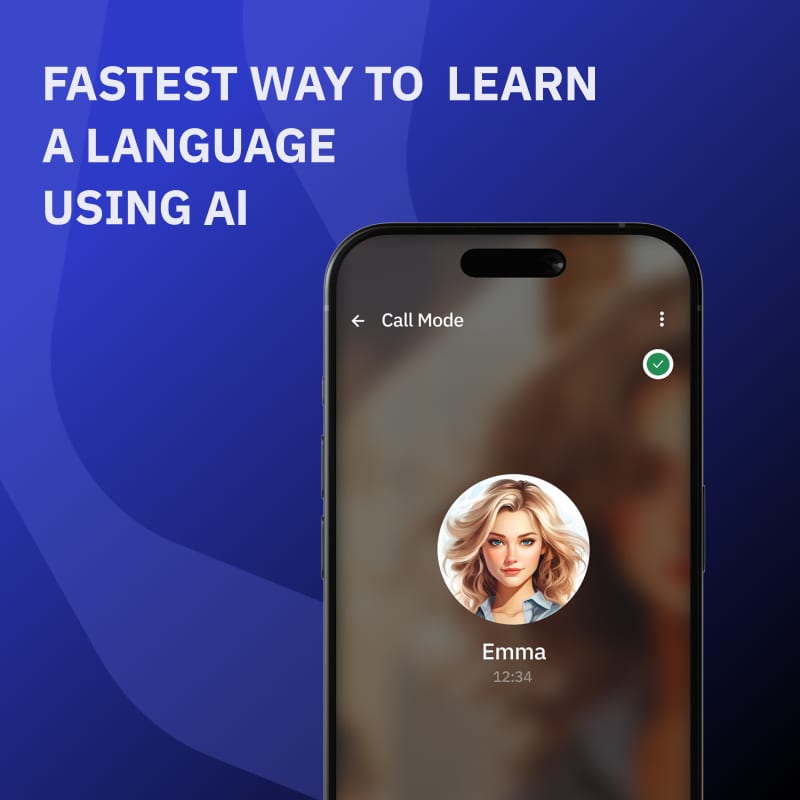Understanding AI in Language Learning
The integration of Artificial Intelligence (AI) in language learning, particularly in test preparation, has revolutionized the methodologies and tools available for students worldwide. AI, with its ability to process and analyze large amounts of data quickly and accurately, offers personalized learning experiences and efficient assessment techniques that are changing how language proficiency is developed and evaluated.
Customization of Learning Materials
Individual Learning Paths: AI algorithms are incredibly effective at analyzing a learner’s strengths and weaknesses. This data is then used to tailor the learning materials to suit individual needs, ensuring that each student can work on their specific areas of improvement. For instance, if a student struggles with grammatical tenses, AI-driven platforms can provide additional exercises and practice tests focusing on this particular aspect.
Adaptive Learning Technologies: These technologies adjust the difficulty level of tasks based on the learner’s performance. As a result, the learner is neither under-challenged nor overwhelmed, maintaining an optimal learning pace and continually promoting progress.
Real-Time Feedback and Corrections
Instant Feedback: One of the most significant advantages of AI in language test preparation is the ability to offer real-time feedback. AI systems can immediately correct mistakes in pronunciation, grammar, and vocabulary during practice sessions. This instant correction helps learners to understand their errors and learn the correct usage quickly without ingrained bad habits.
Error Pattern Recognition: AI can identify common errors that a learner makes, thereby highlighting patterns that might need more attention. This targeted feedback can help learners focus on specific problem areas, making their study time more effective.
Simulated Conversations and Interactions
Chatbots and Virtual Assistants: AI-powered chatbots and virtual assistants can simulate conversations and offer a safe space for learners to practice languages without the fear of judgment. These simulations can range from simple greeting interactions to complex discussions involving industry-specific jargon, depending on the test for which the individual is preparing.
Role-playing Scenarios: Through AI, learners can engage in role-playing exercises that mimic real-life conversations or interview settings that they might encounter in language proficiency tests such as the IELTS or TOEFL. This kind of preparation is invaluable in building confidence and fluency.
Data-Driven Insights for Continuous Improvement
Performance Tracking: AI systems efficiently track progress over time, providing learners and educators with precise data on improvement areas. This tracking includes detailed analytics on time spent, completion rates, and scores in practice tests, allowing for a thorough understanding of a learner’s journey.
Predictive Analytics: Leveraging historical data and current performance, AI can predict potential outcomes in actual tests. This feature helps learners to realistically gauge their preparedness and adjust their study strategies accordingly.
Automated Test Creation and Evaluation
Dynamic Test Generation: AI can generate and regenerate practice tests that are tailored to the learner’s proficiency level, ensuring that the materials are neither too easy nor too difficult. This dynamic adjustment helps maintain an appropriate challenge level and prevents plateauing in the learning curve.
Objective Evaluation: Unlike human evaluators, who may have subconscious biases, AI systems can provide impartial assessments based on predefined criteria. This objectivity ensures that the evaluation is fair and solely based on the learner’s responses.
Challenges and Ethical Considerations
Data Privacy: With the extensive use of data in AI-driven learning systems, there are significant concerns about privacy and security. Ensuring that learners’ data is protected and that the systems comply with global data protection regulations is crucial.
Dependency on Technology: There is a risk that excessive reliance on AI tools might hinder the development of intrinsic problem-solving and analytical skills in learners. Educators must balance the use of technology with traditional learning methods to foster a holistic educational environment.
Accessibility: While AI in language learning is revolutionary, its benefits must be accessible to learners from all socioeconomic backgrounds. Ensuring that these advanced tools do not widen the educational divide but rather bridge it is a responsibility for all stakeholders involved.
Conclusion
AI is undeniably transforming the landscape of language test preparation. By offering personalized learning experiences, immediate feedback, and realistic practice environments, AI enhances the efficiency and effectiveness of studying. However, as we embrace this technology, continuous attention must be given to addressing the ethical challenges and ensuring equitable access to these innovative tools.













